I often run across commentary related to writers’ frustrations with submitting to literary magazines, running into the Wall of Rejection, and rants against The Establishment perceived in many long-standing publications/academically-connected journals. Often, new publications are started by writers attempting to break down the barriers for other writers, promising to give consideration to those totally-unknown authors as well as those who do not come with a highly-acclaimed workshop/colony/MFA pedigree. Stick around literary publishing long enough, and the repetitions become easy to sort, but nonetheless, heartfelt and real for those going through them for the first time.
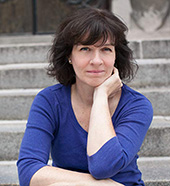 Anette Gendler, in her post “The Year I Gave Up Submitting to Literary Magazines” in Women Writers, Women[‘s] Books, took a look at her publishing record a few years back, “As 2015 drew to a close, I reviewed my submissions log and noted that 25 submissions to literary magazines had yielded zero acceptances.” After considering the usual self-blame (“not enough effort, I should have submitted more”), Gendler considered her record for the years prior: 32 submissions/0 acceptances; 68 submissions/0 acceptances.
Anette Gendler, in her post “The Year I Gave Up Submitting to Literary Magazines” in Women Writers, Women[‘s] Books, took a look at her publishing record a few years back, “As 2015 drew to a close, I reviewed my submissions log and noted that 25 submissions to literary magazines had yielded zero acceptances.” After considering the usual self-blame (“not enough effort, I should have submitted more”), Gendler considered her record for the years prior: 32 submissions/0 acceptances; 68 submissions/0 acceptances.
For many reading this, I know the first thought: Maybe she’s just not that good.
Consider her previous publication credits: Bella Grace, Washington Independent Review of Books, Tablet Magazine, Thread, Wall Street Journal, and, for a period of time before this ‘dry spell’: Flashquake, South Loop Review, Under the Sun, Bellevue Literary Review, Kaleidoscope, Natural Bridge, and Prime Number Magazine.
She’s been published. She just wasn’t seeing the results that would encourage her to continue banging her head against that Wall. Yet, she asked herself, “Could I abandon the mothership?” She did, and instead, “I focused on the publications whose work I truly admired and loved to read, and that’s where I kept submitting.”
The result? “It’s not that suddenly all my work gets accepted, but the rate is much higher,” Gendler writes. “I now look at my submissions in terms of publications I want to get into. I think about what I could write for them.”
After reading Gendler’s commentary and seeing it had been a few years, I wondered, “Where is she now?” with her stance on lit mags, so I reached out to her to ask.
“My approach has pretty much stayed the same since then,” she wrote, “I don’t submit to literary magazines anymore. Not doing so was essentially a course correction for me. Literary magazines are just not the right market for my work, even though I write literary nonfiction and memoir.”
As well, since that time, she has published her first book, Jumping Over Shadows: A Memoir. Ironically, a lit mag editor, having read her post, asked her to submit something for their journal. She did, and they published The Flying Dutchman, an excerpt from her book.
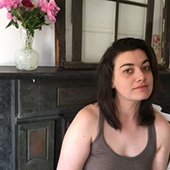 Produced within the MFA at Eastern Washington University, Willow Springs literary magazine features writers from their current print issue online.
Produced within the MFA at Eastern Washington University, Willow Springs literary magazine features writers from their current print issue online.
 “Etymology of a Mood” by Ama Codjoe won
“Etymology of a Mood” by Ama Codjoe won 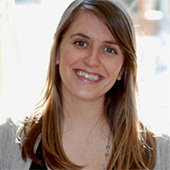
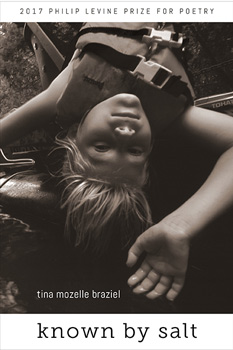 In January, Anhinga Press released the winner of their
In January, Anhinga Press released the winner of their 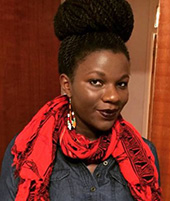 Flash Prose
Flash Prose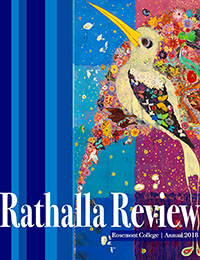
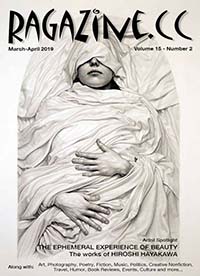
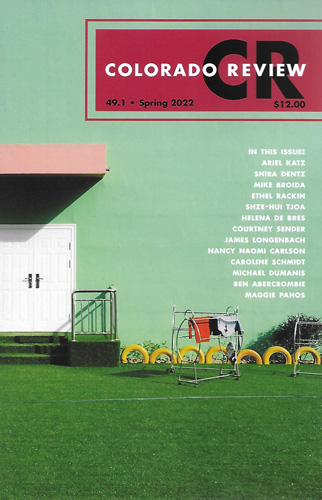 Recent posts include:
Recent posts include: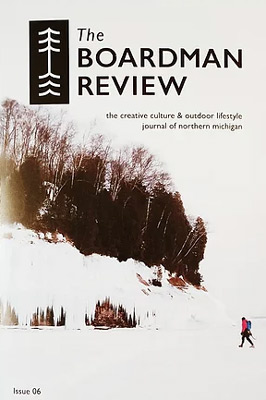 If your interest is in the outdoors as well as the arts, something fresh and new,
If your interest is in the outdoors as well as the arts, something fresh and new, 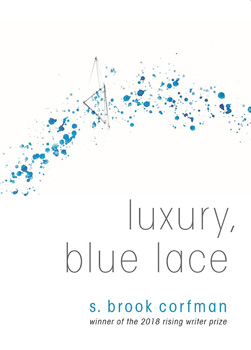 This month, find Luxury, Blue Lace by S. Brook Corfman at Autumn House Press. Winner of the 2018 Rising Writer Contest, judge Richard Siken notes how Corfman “examines the ways that presentation and representation conflate and complicate. Expansive, generous, deeply considered, and highly lyric, this book, with its transformations and overlaps, astounds.”
This month, find Luxury, Blue Lace by S. Brook Corfman at Autumn House Press. Winner of the 2018 Rising Writer Contest, judge Richard Siken notes how Corfman “examines the ways that presentation and representation conflate and complicate. Expansive, generous, deeply considered, and highly lyric, this book, with its transformations and overlaps, astounds.”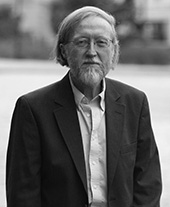 As I write now, during the middle days of February, hard upon our Spring 2019 deadline, the dice are still not fully cast for my successor or my exact departure date – and so I will be brief again: the earliest I would step away is 1 June, at which time our Summer 2019 issue will literally be in press and the preparation of the Fall 2019 contents will be in full swing, so my ghost will be around for at least some aspects of the latter. The goal for me, for the rest of the Georgia Review staff, and for the University of Georgia, is a transition that will be as smooth as possible for our submitters, contributors, and readers.
As I write now, during the middle days of February, hard upon our Spring 2019 deadline, the dice are still not fully cast for my successor or my exact departure date – and so I will be brief again: the earliest I would step away is 1 June, at which time our Summer 2019 issue will literally be in press and the preparation of the Fall 2019 contents will be in full swing, so my ghost will be around for at least some aspects of the latter. The goal for me, for the rest of the Georgia Review staff, and for the University of Georgia, is a transition that will be as smooth as possible for our submitters, contributors, and readers.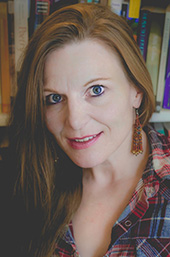 Write Prize for Fiction
Write Prize for Fiction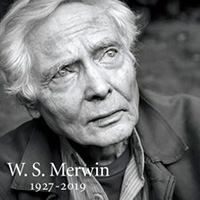 The Kenyon Review
The Kenyon Review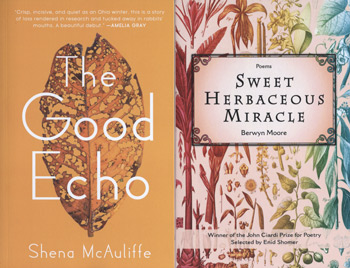 There was a lot going on at the end of 2018, so maybe you missed out on some of the award-winning books published toward the tail end of the year. Don’t worry—we’ve got you covered.
There was a lot going on at the end of 2018, so maybe you missed out on some of the award-winning books published toward the tail end of the year. Don’t worry—we’ve got you covered. Glimmer Train March 2019 Bulletin
Glimmer Train March 2019 Bulletin Pleaides Press annually hosts the
Pleaides Press annually hosts the 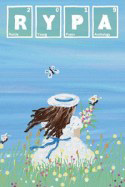 Subscribers to
Subscribers to  Scholastic News Kids Press Corps
Scholastic News Kids Press Corps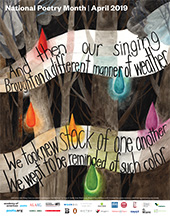 The
The 
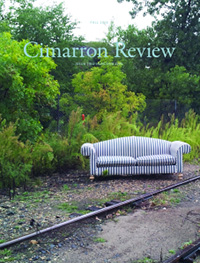
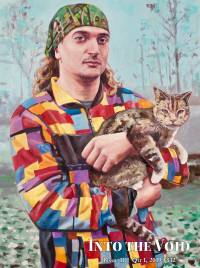
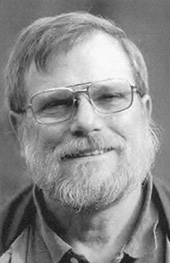 First Place
First Place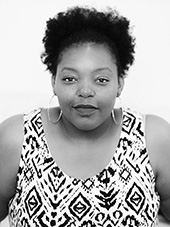 Engaging Civically through Collaborative Art: Developing a Working Aesthetics of Protest Art with Michelle Slater
Engaging Civically through Collaborative Art: Developing a Working Aesthetics of Protest Art with Michelle Slater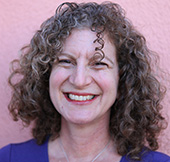 Since there is always a lag time created between contemporary news issues and publications of poetry,
Since there is always a lag time created between contemporary news issues and publications of poetry, 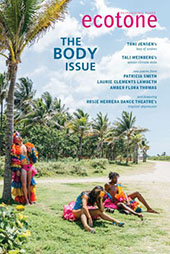 “Oh, plastic, scourge of the Anthropocene, shaped into adorable shapes and dyed multifarious colors; plastic, who will be with us forever: it’s easy to forget about you, but when I remember you’re here, I’m annoyed and freaked out all at once.”
“Oh, plastic, scourge of the Anthropocene, shaped into adorable shapes and dyed multifarious colors; plastic, who will be with us forever: it’s easy to forget about you, but when I remember you’re here, I’m annoyed and freaked out all at once.”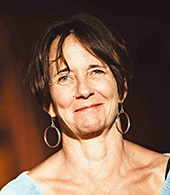 1st place goes to Marian Palaia [pictured] of San Francisco, California, who wins $2500 for “Wild Things.” Her story will be published in Issue 106, the final issue of Glimmer Train Stories.
1st place goes to Marian Palaia [pictured] of San Francisco, California, who wins $2500 for “Wild Things.” Her story will be published in Issue 106, the final issue of Glimmer Train Stories.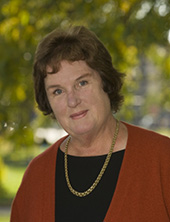 “All of the work in this special Fall issue of
“All of the work in this special Fall issue of 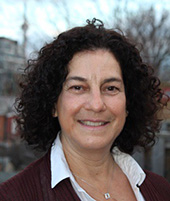 First Place
First Place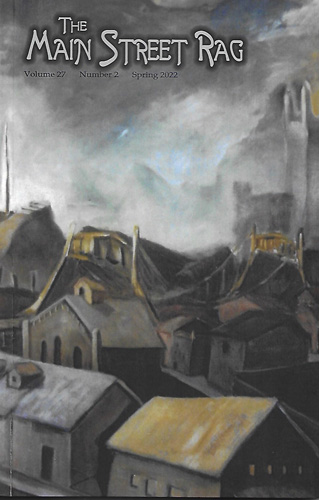

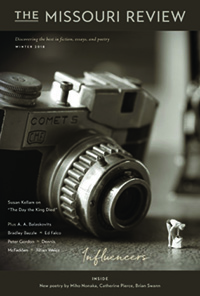
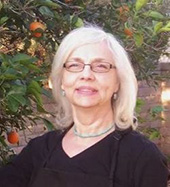 growing into ourselves
growing into ourselves First Place
First Place Co-edited by Nicole Oquendo [pictured], Editor Lisa Roney introduces the newest issue of
Co-edited by Nicole Oquendo [pictured], Editor Lisa Roney introduces the newest issue of 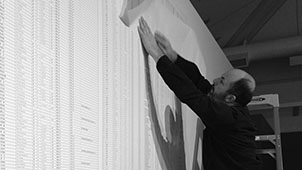 In his discussion, Boyden explains how, had it not been for Chinese artist Ai Weiwei, the names of these children, and the government being held accountable for the shoddy construction of the schools where these children were killed, would have been lost.
In his discussion, Boyden explains how, had it not been for Chinese artist Ai Weiwei, the names of these children, and the government being held accountable for the shoddy construction of the schools where these children were killed, would have been lost.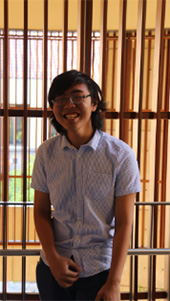 Poetry
Poetry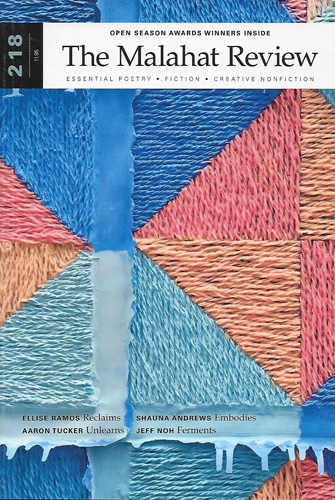 The newest issue of
The newest issue of  Anette Gendler
Anette Gendler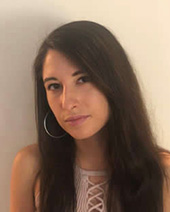 First Prize
First Prize Over the past several months, writer
Over the past several months, writer 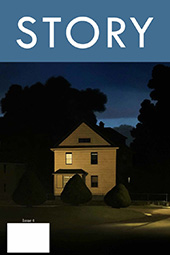 In addition, Nye has drawn in a solid staff: Associate Editor LaTanya McQueen; Staff Andrew Bockhold, Brandon Grammer, Robert Ryan, and Brianna Westervelt; as well as a Board of Directors with Ruth Awad, Valerie Cumming, Keith Leonard, and Maggie Smith; and an Advisory Board with David Althoff, Jürgen Fauth, Stephanie G’Schwind, Roxane Gay, Jonathan Gottschall, Andrea Martucci, Speer Morgan, David Shields, Randi Shedlosky-Shoemaker, Jim Shepard, and Marion Winik.
In addition, Nye has drawn in a solid staff: Associate Editor LaTanya McQueen; Staff Andrew Bockhold, Brandon Grammer, Robert Ryan, and Brianna Westervelt; as well as a Board of Directors with Ruth Awad, Valerie Cumming, Keith Leonard, and Maggie Smith; and an Advisory Board with David Althoff, Jürgen Fauth, Stephanie G’Schwind, Roxane Gay, Jonathan Gottschall, Andrea Martucci, Speer Morgan, David Shields, Randi Shedlosky-Shoemaker, Jim Shepard, and Marion Winik. Rachel Napolitano was born in Dallas, TX. She has been the wife of an F-16 pilot since 2011. In her memoir In the Passenger Seat of the Viper: Stories from the Wife of an F-16 Pilot, she talks about her experience in the military community from an insider’s point of view. Her lifestyle requires constant relocation to disparate countries. She lived in places such as LA, Italy, South Korea, and South Carolina, and traveled to exotic locales.
Rachel Napolitano was born in Dallas, TX. She has been the wife of an F-16 pilot since 2011. In her memoir In the Passenger Seat of the Viper: Stories from the Wife of an F-16 Pilot, she talks about her experience in the military community from an insider’s point of view. Her lifestyle requires constant relocation to disparate countries. She lived in places such as LA, Italy, South Korea, and South Carolina, and traveled to exotic locales. Winner
Winner
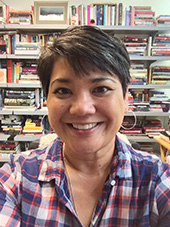 Cathy J. Schlund-Vials [pictured] and Lawrence-Minh Bùi Davis, editors for this issue write in the
Cathy J. Schlund-Vials [pictured] and Lawrence-Minh Bùi Davis, editors for this issue write in the 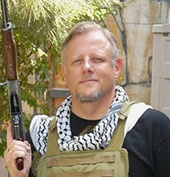 Weston Ochse spent thirty years in the military. The first five years was as a communications specialist who carried the combat radio. Then he transferred to intelligence where he stayed for the remainder of his career. He performed humanitarian operations in Bangladesh, was deployed in Afghanistan, and near cannibalized in Papua New Guinea. His intense military experience helped him carve indelible characters.
Weston Ochse spent thirty years in the military. The first five years was as a communications specialist who carried the combat radio. Then he transferred to intelligence where he stayed for the remainder of his career. He performed humanitarian operations in Bangladesh, was deployed in Afghanistan, and near cannibalized in Papua New Guinea. His intense military experience helped him carve indelible characters.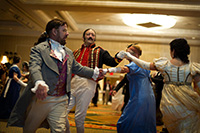 Just what fans of Jane Austen need: Our own society of Austen lovers!
Just what fans of Jane Austen need: Our own society of Austen lovers!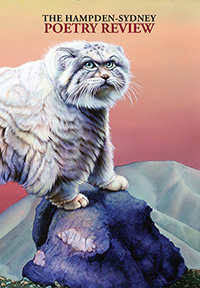 Each issue of
Each issue of 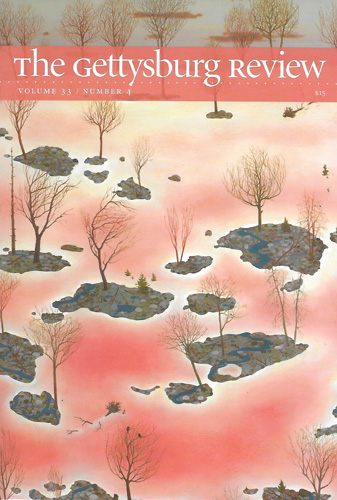 David Graeme Baker’s oil on linen Escape Velocity greets readers of the Autumn 2018 issue of
David Graeme Baker’s oil on linen Escape Velocity greets readers of the Autumn 2018 issue of 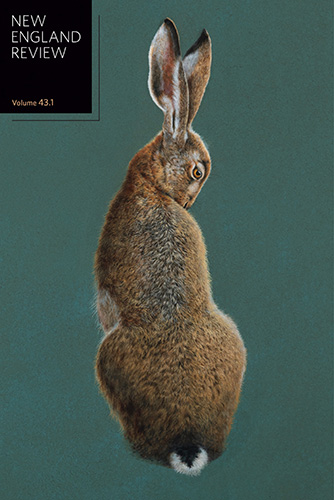
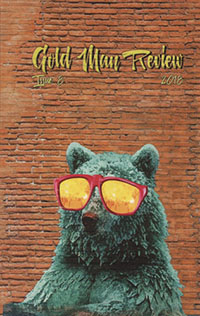
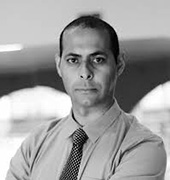 Military stories have engrossed readers and viewers worldwide, ranging from iconic films like A Thin Red Line to visceral books such as Black Hawk Down. Fiction, non-fiction, poetry, screenwriting – no matter the genre – we are shaken by the grit of reality and the hero’s quests for victory or survival.
Military stories have engrossed readers and viewers worldwide, ranging from iconic films like A Thin Red Line to visceral books such as Black Hawk Down. Fiction, non-fiction, poetry, screenwriting – no matter the genre – we are shaken by the grit of reality and the hero’s quests for victory or survival. Susan Caswell has been in the Army for twenty years, eighteen and a half on active duty. She was a direct commission as a chaplain. Most of her work is of a non-religious nature. She provides counseling to deal with combat and financial stress, relationship and medical issues, among other sensitive cases. Most of the service members are between the ages of 18-24, extremely young and away from the safety of their homes.
Susan Caswell has been in the Army for twenty years, eighteen and a half on active duty. She was a direct commission as a chaplain. Most of her work is of a non-religious nature. She provides counseling to deal with combat and financial stress, relationship and medical issues, among other sensitive cases. Most of the service members are between the ages of 18-24, extremely young and away from the safety of their homes.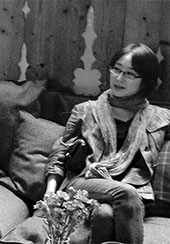 Fiction Winner
Fiction Winner The Fall/Winter 2018 issue of
The Fall/Winter 2018 issue of